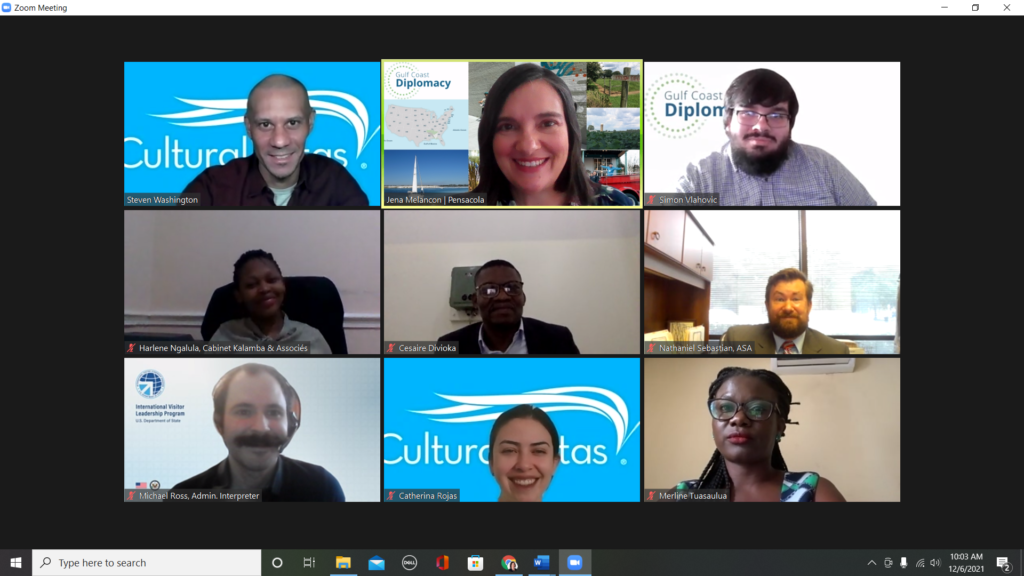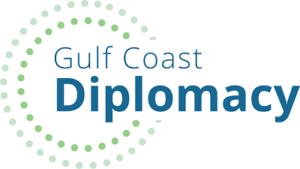As a local, participating in a meeting with international visitors through Gulf Coast Diplomacy can appear minor. Yet, examining why the U.S. Department of State promotes international exchange through the International Visitor Leadership Program (IVLP) and other exchanges reveals how impactful these meetings can be. Even when 100% of our exchanges are virtual, as happened in 2021, the conversations and connections from time together help build the trust necessary for future success.
Five key policies drive the work of the Department of State. Two of these are protecting the United States and American citizens and defending human rights, and every step towards these goals counts. That is why meeting with an exchange participant in a professional or social setting is essential. As a citizen diplomat, you can affect U.S. foreign policy goals from Northwest Florida. In 2021, folks from across the region did just that through 21 IVLP and five youth exchanges.
In October, both Grace McCaffery of La Costa Latina and Dr. Willie Tubbs of the University of West Florida assisted in the first key policy of protecting the U.S. when they met digitally with German exchange participants on an IVLP looking at preventing online disinformation. In the meeting with McCaffery, international visitors learned how local media plays a role in encouraging governmental transparency, including covering local issues and controversies. Meanwhile, Dr. Tubbs discussed how laws, particularly the First Amendment, protect the press and allow for these freedoms. A cultural exchange with local students and citizens from various professions gave visitors a taste of day-to-day life in Pensacola.
Several of our 2021 projects also incorporated the Department of State’s fundamental policy of defending human rights. For example, to promote transparency and accountability in government, Don Kraher of Pensacola City Hall discussed the Florida Sunshine Law in March with visitors from the Indo-Pacific, while Rick Outzen of InWeekly talked to them about how local media encourages transparency. Similarly, Nate Sebastian of the Office of the State Attorney spoke with exchange participants looking at the U.S. judicial system, examining how various laws on state and local levels promote accountability in government.
Other projects in 2021 approached the topic of human rights from different angles. One group in the spring called in from Trinidad & Tobago. It consisted of professionals working to prevent gender-based violence in their communities, and an October group from Mexico explored LGBTI advocacy. Dr. Kimberly McCorkle of the University of West Florida met with the first to lead a two-part interactive workshop focused on creating public outreach campaigns. For the LGBTI advocacy, Reverend Susan Sowers of St. Christopher’s Episcopal Church discussed her work at the intersection of religion and LGBTI rights, a topic of particular interest in the visitors.
Without a doubt, locals throughout Northwest Florida play a vital role in assisting the U.S. Department of State in defending both the United States and human rights as a whole. Though these visits are only an hour or two on one particular day, their ripples are far-reaching.
This is part one of a two-part examination of the work of citizen diplomats in Northwest Florida. You may find part two through this link.

